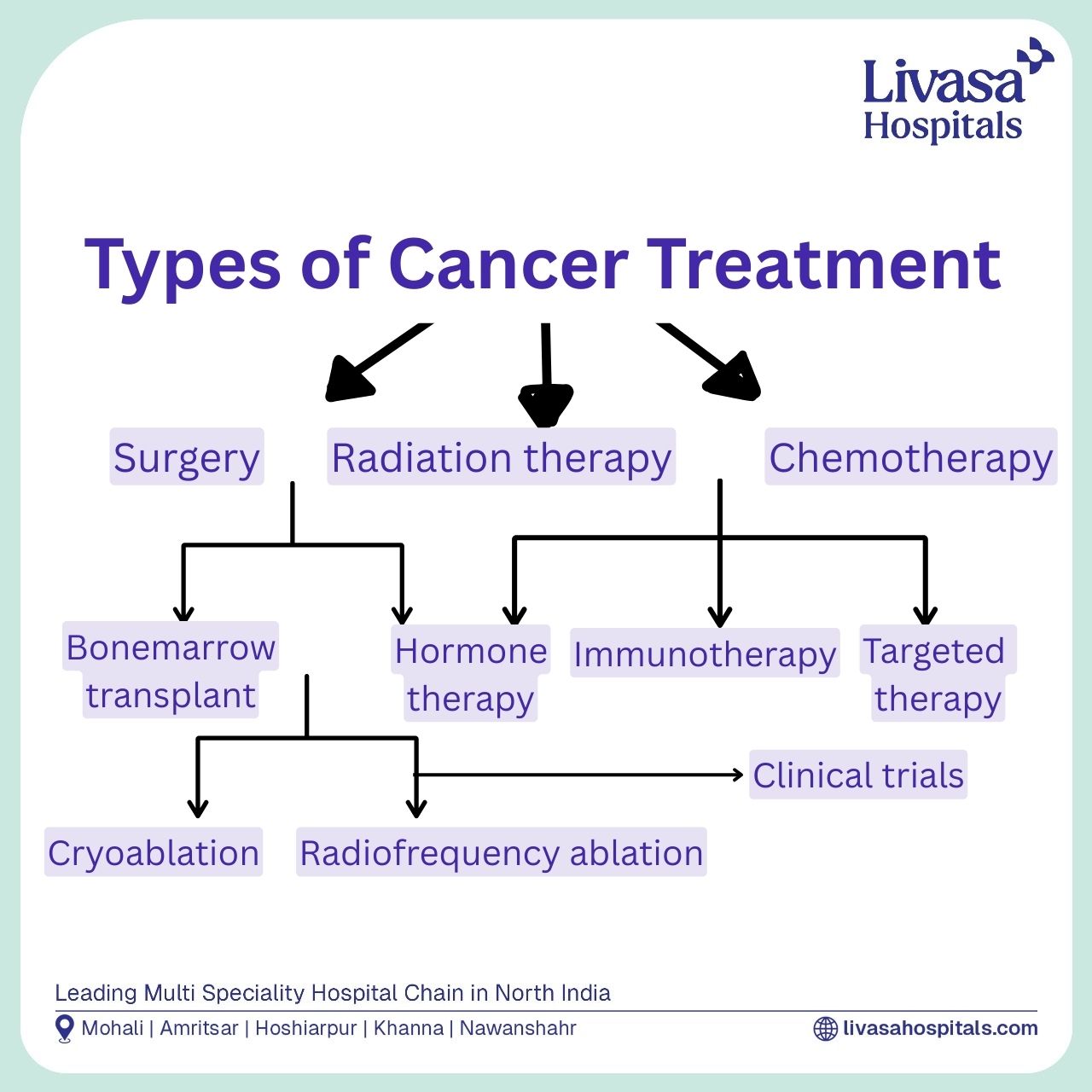19 Dec 2025
Age Specific Related to Psoriasis in Amritsar


Dr Priyanshu Choudhary
29 Mar 2025
Call +91 80788 80788 to request an appointment.
The overall goal of cancer treatment is to halt or delay the growth of the disease. Better yet, in some circumstances, the goal of treatment is to completely remove or cure the cancer. In real time, things become more complex. There are over 100 forms of cancer (excluding subcategories). Each demands a specific therapeutic method. If you've recently been diagnosed with cancer, no one can substitute your healthcare provider's advice in terms of discussing your alternatives. However, having general awareness of the many cancer treatments available and what is involved may be beneficial.
Types of cancer treatment
Healthcare providers may recommend one or, more commonly, a combination of cancer treatments, such as:

Depending on your cancer type, you may be able to receive additional treatments.
Conclusion
Cancer treatment is complicated and extremely customized. A patient's treatment plan is frequently adjusted to the kind, stage, and location of cancer, as well as their general health and personal preferences. Advances in cancer research and the introduction of novel treatments, such as immunotherapy and targeted therapy, have considerably increased survival rates. However, controlling cancer necessitates a multifaceted approach that includes surgery, chemotherapy, radiation, and other treatments. As research progresses, the aim is that cancer treatments will become more effective, resulting in better results and a higher quality of life for patients
+91 80788 80788
Livasa Healthcare Group Corporate Office,Phase-8, Industrial Area, Sector 73, Sahibzada Ajit Singh Nagar, Punjab 160071
livasacare@livasahospitals.in
| Mohali | +91-99888 23456 |
| Amritsar | +91-99887 49494 |
| Hoshiarpur | +91-99883 35353 |
| Nawanshahr | +91-75081 82337 |
| Khanna | +91-98888 05394 |